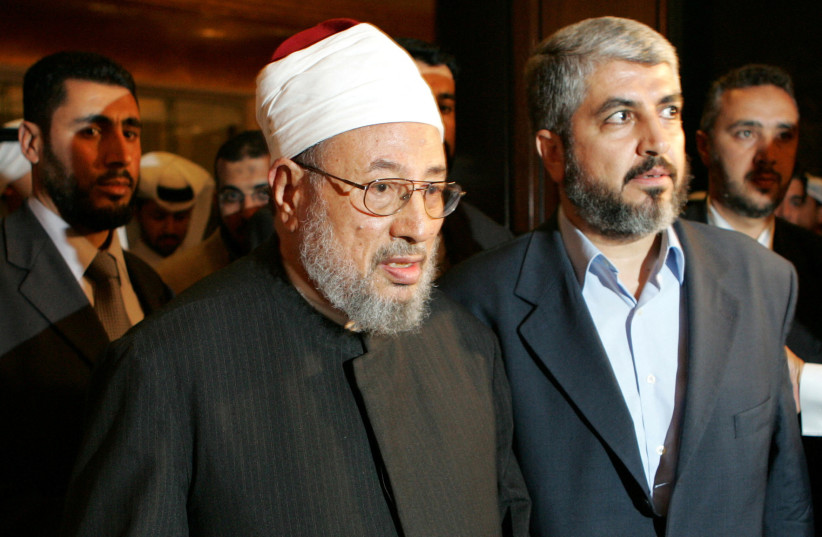Malthus’s theory, 200 years later
Al Arabiya, UAE, November 18
For more stories from The Media Line go to themedialine.org
On November 15 of this year, humanity reached an unprecedented milestone, as the number of the world’s inhabitants reached eight billion people. This is a turning point in the history of human evolution. Until the beginning of the 19th century, Earth’s population had not reached one billion people. But in less than a century, this number multiplied itself over eight times, opening the door to many questions.
In particular, this milestone reminds us of Robert Malthus, the noted English demographer and economist, who developed a theory on the relationship between population growth and the natural resources needed to sustain human life.
What Malthus asserted is that the human population is growing in a geometric sequence – i.e., 2, 4, 8, 16, and so on, while the natural resources available to us globally are growing in a numerical sequence – i.e., 2, 4, 6, 8, and so on. This means that there is a big and ever growing gap between the ability of the planet to feed its inhabitants and the rate at which these inhabitants grow.

What is the main reason for this rapid and frightening growth? Will this growth continue in the coming decades?
According to United Nations data, this unprecedented growth in the world’s population has been caused by the gradual increase in human life expectancy, due to improvements in public health, nutrition, personal hygiene and medicine. It is also the result of high levels of fertility in some countries.
The UN estimates that the population of our planet will reach nine billion by 2037, and then hit a peak of over 10 billion people sometime between 2080 and 2100. A deeper analysis of the numbers provides us with interesting insights into the future of humanity.
For example, the population increase in the next 100 years will disproportionately affect the African continent. If African countries make good use of their natural resources, promote sustainable development projects and combat poverty, they might be able to sustain this growth. The other likely trend we will witness is a change in the demographic composition of many major countries. For example, India is likely to overtake China as the world’s largest country in terms of population in the next few years.
Meanwhile, in Europe, population growth rates may reach 0%, which raises questions about the future of the continent and whether it will be able to maintain its historical origins and roots, rather than be replaced by migrants. In addition, the shrinking population in the continent will inevitably lead to its transformation from a young and productive market to an aging one, where a shrinking workforce needs to support a growing base of retirees.
So, what should humanity do to meet such an increase in the coming years?
What is certain is that without a well-studied and well-crafted multilateral plan, humanity will face a growing crisis in all aspects of life. It is crucial for us to diversify our food sources and support cutting-edge agricultural solutions and methods that can improve our ability to produce food.
We must also ask what the Arab world and the Middle East can do to alleviate the problem. It is very clear that, in this part of the world, fertility rates remain high and the proportion of young people in the overall population continues to grow. This means that, given the right plans and training, we should be able to secure vital, functioning economies in our countries. – Emile Amin
Beware of the Brotherhood’s evils
Al-Qabas, Kuwait, November 17
Since the founding of the Muslim Brotherhood movement in 1928, intense confusion and strong suspicions existed around the circumstances of its founding, the role of the British government in financing it and the disputes that arose between its founders, especially Hassan al-Banna.
In a book titled The Testimony of the True Founder of the Brotherhood, written by Muhammad Salih al-Sabti, the author cites Ahmed al-Sukkari, who is believed to be the real founder of the movement. The book describes how Sukkari became the opponent of Banna, pushing the latter to take over the organization. Another reason for Banna’s takeover was his insistence on involving the Brotherhood in politics.
Today, some observers believe that we are actually witnessing the beginning of the end of Islamic terrorist groups, despite their recent expansion in terms of both numbers and strength. In Egypt – perhaps the Brotherhood’s biggest historical stronghold – the group’s popularity has been on the decline. Today, it is synonymous with bribery and corruption.
In an expected development, a few weeks ago, Germany’s Central Council of Muslims expelled the Brotherhood’s representatives from its membership. This was preceded by the German authorities’ decision to designate the “German Islamic Assembly” as a terrorist group.
Note that the history of the Brotherhood’s penetration into Germany dates back to the 1950s. According to the information that was recently revealed, a Brotherhood member by the name of Ibrahim al-Zayat played a prominent role in supervising all Brotherhood offshoots in Germany. His influence increased after his marriage to the niece of Necmettin Erbakan, the founder of the Turkish Welfare Party, which helped him establish the European Council for Fatwa and Research as a means for raising funds for the group.
The German authorities described Zayat as the first person in charge of the Brotherhood in Germany, responsible for financing the group’s various activities, and called him the “minister of finance of the Brotherhood.”
We’ve already warned against the infiltration of the representatives of the Brotherhood movement into politics, as these people are loyal to their organization, their guide and their oath – never to their government or homeland. – Ahmed al-Sarraf
Translated by Asaf Zilberfarb.
